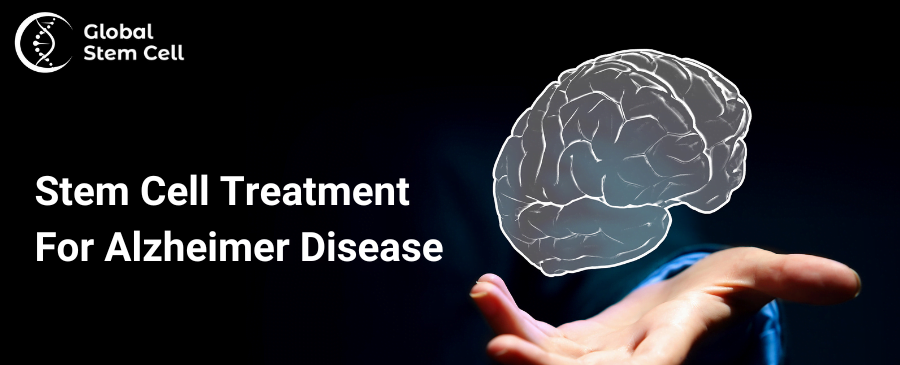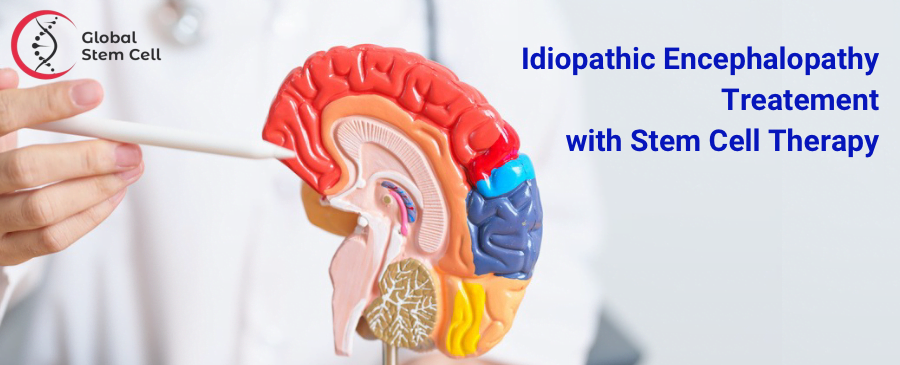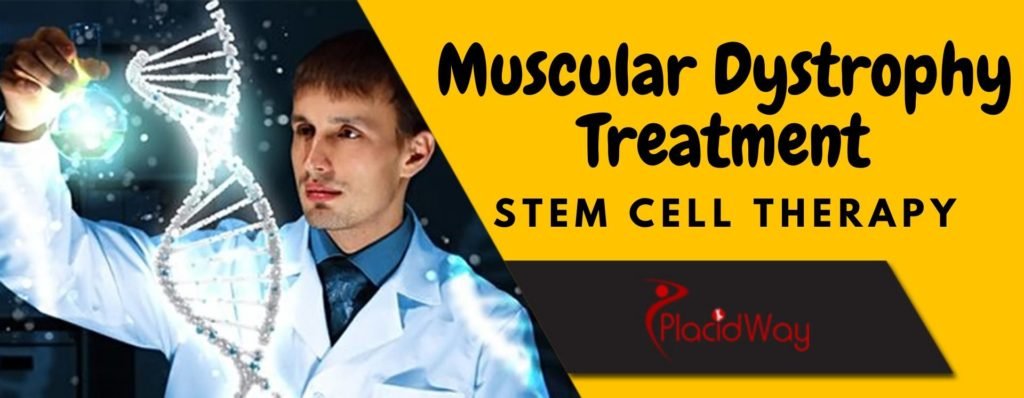Regenerative Medicine for Alzheimer’s Disease
Table of Content
When the clarity, functions and processes of the brain is affected, the condition is termed as Alzheimer’s disease. This devastating condition affects a person in several stages. In the beginning, people start to forget things, which gradually increase frequency. Moreover, other symptoms start to take place such as reasoning processes, difficulty with thinking and confusion.
There is no cure for Alzheimer’s till date. A degenerative decline can be noticed continuously among the patients that eventually lose the brain’s ability to control vital functions of the body such as mobility, swallowing and breathing. However, there is a ray of hope for people diagnosed with Alzheimer’s disease with the recent development of stem cell therapies.
Alzheimer’s Disease Symptoms
The processes and symptoms of Alzheimer’s diseases are now widely known and understood. However, researchers and doctors are not certain why exactly this condition takes place. Some medications used for the Alzheimer’s patients to deal with the symptoms, but they cannot cure the problem.
Research on the stem cells focuses on offering hope for treating multiple stages of Alzheimer’s disease. This also includes providing relief from its symptoms and improving body functions and clarity. Fetal stem cell therapy aims to restore or maintain particular brain function, as well as reduce further damage to brain cells and nerves.
Several studies state the stem cell treatments are most beneficial during the early stages of Alzheimer’s when mental symptoms such as forgetfulness, confusion and loss of memory are first noticed. It’s important to address some key points regarding fetal stem cell therapy for Alzheimer’s disease:
- Limited Evidence: While some studies suggest fetal stem cell therapy might improve sleep, appetite, body weight regulation, and overall physical conditions in Alzheimer’s patients, this evidence is limited and requires further investigation.
- Focus on Brain Function: The primary focus of stem cell therapy research in Alzheimer’s disease is on its potential to improve cognitive function, memory, and slow disease progression. There’s less established evidence regarding these broader physical improvements.
- Ethical Concerns: Fetal stem cell therapy raises significant ethical concerns due to the source of the stem cells.This is a major reason why research in this area is limited and tightly regulated.
Alzheimer’s Disease Causes
Alzheimer’s disease is caused by a combination of genetic and environmental factors, as well as lifestyle choices. It is believed to be the result of a number of different processes that occur over time in the brain.
1) Impaired Protein Clearance: Insufficient clearance of abnormal proteins, such as beta-amyloid or tau, from the brain is one of the earliest processes associated with Alzheimer’s disease.
2) Cellular Dysfunction: Malfunctioning neurons and their inability to communicate properly can lead to impaired memory formation and recall.
3) Neuroinflammation: Constant inflammation in the brain can cause further damage to neurons, leading to further memory loss and other symptoms of Alzheimer’s.
4) Neurodegeneration: The accumulation of plaques and tangles associated with Alzheimer’s can eventually cause neurons to die, leading to significant changes in brain structure and function.
5) Cognitive Decline: As the disease progresses, patients experience difficulty with memory, language, problem-solving and other cognitive processes
How Stem Cell Helps to Treat Alzheimer’s Disease?
Stem cell treatments are becoming increasingly important in treating Alzheimer’s Disease. Stem cells are undifferentiated cells that can differentiate into any other type of cell, allowing them to be used in therapies to replace lost or damaged tissue and restore function. In the case of Alzheimer’s disease, stem cell therapy has potential to treat the progressive neurodegenerative disorder by regenerating damaged neurons, reducing inflammation, and improving cognition.
One of the most promising applications of stem cell therapy for Alzheimer’s is to create neural progenitor cells (NPCs) from induced pluripotent stem cells (iPSCs). NPCs are immature nerve cells that can be grown in a laboratory and used to replace damaged neurons in the brain. Clinical trials of NPC transplants are currently underway, with promising results for the treatment of Alzheimer’s.
Watch Alzheimer’s disease with stem cell treatment video.
Benefits of Stem Cells for Alzheimer’s
Stem Cell treatment for Alzheimer’s Disease offers a wide range of potential benefits. This therapy has been extensively researched and is gaining increasing recognition as an effective treatment option.
The main benefit of stem cell therapy for Alzheimer’s Disease is that it can help to slow down the progression of the disease and improve quality of life. This is due to the fact that stem cell therapy can help to regenerate damaged neurons and protect other existing neurons from further damage. A wide range of studies have confirmed this potential benefit, with some even suggesting that it could lead to a reversal of some of the cognitive impairments associated with Alzheimer’s disease.
Pre-Treatment Considerations for Stem Cell Therapy in Alzheimer’s Disease
Stem cell therapy for Alzheimer’s disease (AD) is a promising but evolving field. Before undergoing any treatment, it’s crucial to understand the pre-treatment considerations:
- Consultation: Discuss your situation with a neurologist specializing in dementia. They will assess your stage of AD, medical history, and overall health to determine if stem cell therapy is a suitable option.
- Eligibility Evaluation: You’ll likely undergo tests like cognitive assessments, brain imaging (MRI or PET scans),and blood work to ensure you meet the specific eligibility criteria for the chosen clinical trial (if applicable).
- Informed Consent: Detailed information regarding the type of stem cell therapy, its source (adult stem cells are more common than fetal stem cells due to ethical concerns), potential risks and benefits, alternative treatments, and the entire treatment process will be provided. You’ll need to provide written consent to proceed.
- Baseline Evaluation: This involves establishing a baseline for your cognitive function, behavior, and daily living skills. This will be used to measure any potential changes after the therapy.
- Pre-conditioning (Optional): Depending on the specific therapy, some pre-conditioning procedures like medication adjustments might be necessary to prepare your body for the stem cell introduction.
Post-Treatment Care After Stem Cell Therapy for Alzheimer’s Disease:
- Monitoring: Close monitoring of your cognitive function, behavior, and overall health is crucial. This might involve regular cognitive assessments, brain imaging, and blood tests.
- Side Effect Management: While stem cell therapy is generally considered safe, potential side effects like headaches, fever, or infection can occur. Your doctor will monitor for these and provide necessary treatment.
- Long-Term Follow-up: Regular follow-up appointments with your neurologist are essential to track the long-term effects of the therapy, monitor for any potential complications, and assess the overall impact on your Alzheimer’s disease.
- Lifestyle Management: Maintaining a healthy lifestyle with a balanced diet, regular exercise, and cognitive stimulation activities is crucial to support your brain health and potentially maximize any benefits from the therapy.
Additional Considerations:
- Limited Evidence: While early research shows promise, the long-term effectiveness of stem cell therapy for Alzheimer’s disease needs further investigation.
- Not a Cure: Stem cell therapy is not currently considered a cure for Alzheimer’s, but it holds potential to slow disease progression or improve symptoms.
- Ongoing Research: The field of stem cell therapy for Alzheimer’s is constantly evolving. New research and clinical trials are emerging, so staying informed about advancements is important.
By understanding both the pre- and post-treatment considerations, you can make an informed decision about whether to pursue stem cell therapy as part of your Alzheimer’s disease treatment plan. Remember, close communication with your doctor is key throughout the process.
Frequently Asked Questions : Stem Cell Therapy for Alzheimer’s Disease
Stem cell therapy is a promising, yet evolving, approach for treating various conditions, including Alzheimer’s disease. Here are three frequently asked questions:
Can stem cell therapy cure Alzheimer’s disease?
Answer: No, there is currently no cure for Alzheimer’s disease. However, stem cell therapy is being explored as a potential treatment to slow disease progression, improve symptoms, or even promote the regeneration of damaged brain cells.
What are the potential benefits of stem cell therapy for Alzheimer’s?
Answer: Researchers are looking at several potential benefits, including:
- Reduced inflammation: Stem cells might help reduce inflammation in the brain, a contributing factor in Alzheimer’s disease.
- Improved cell function: Stem cells could potentially promote the survival and function of existing brain cells.
- Cell regeneration: In theory, some types of stem cells might replace damaged brain cells lost due to Alzheimer’s.
Is stem cell therapy for Alzheimer’s safe and widely available?
Answer: Stem cell therapy for Alzheimer’s disease is still under investigation. Safety data is limited, and long-term effects are unknown. Currently, it’s not a widely available treatment option. Most therapies are offered through clinical trials with strict eligibility criteria.
Are there any risks of using stem cells to treat Alzheimer’s disease?
Yes, there is a risk of infection and allergic reactions associated with stem cell treatments. Additionally, if the patient’s own stem cells are used for treatment, there is a risk that the transplant may not be effective or cause an immune reaction in the body. Therefore, it is important to discuss all risks and benefits with your doctor before beginning any stem cell treatment.
What types of stem cells are used to treat Alzheimer’s?
Typically, embryonic or adult stem cells are used in treatments for Alzheimer’s disease. Embryonic stem cells have the ability to become any type of cell and may provide the most benefit when it comes to treating diseases like Alzheimer’s. Adult stem cells are already specialized and can be used to replace or repair tissue that has been damaged by the disease.
How much does stem cell treatment for Alzheimer’s disease cost, and is it covered by insurance policies?
The cost of stem cell treatment for Alzheimer’s disease can vary greatly depending on the type of treatment and where it is offered. In the United States, stem cell treatment is not typically covered by insurance policies. It is important to speak with your doctor and insurance provider about the cost of stem cell treatment for Alzheimer’s disease.
Also, there are many best regenerative medicine centers offers stem cell treatments for Alzheimer’s to the patients all around the world.
What is the long-term outlook for patients who undergo stem cell treatment for Alzheimer’s disease?
The effectiveness of stem cell treatments for Alzheimer’s disease is still being studied and more research is needed to understand the long-term impacts of the treatments. Currently, studies show that stem cell treatment can improve symptoms in Alzheimer’s disease patients and slow the progression of the disease.
For more details about Alzheimer’s stem cell treatment, click below:







